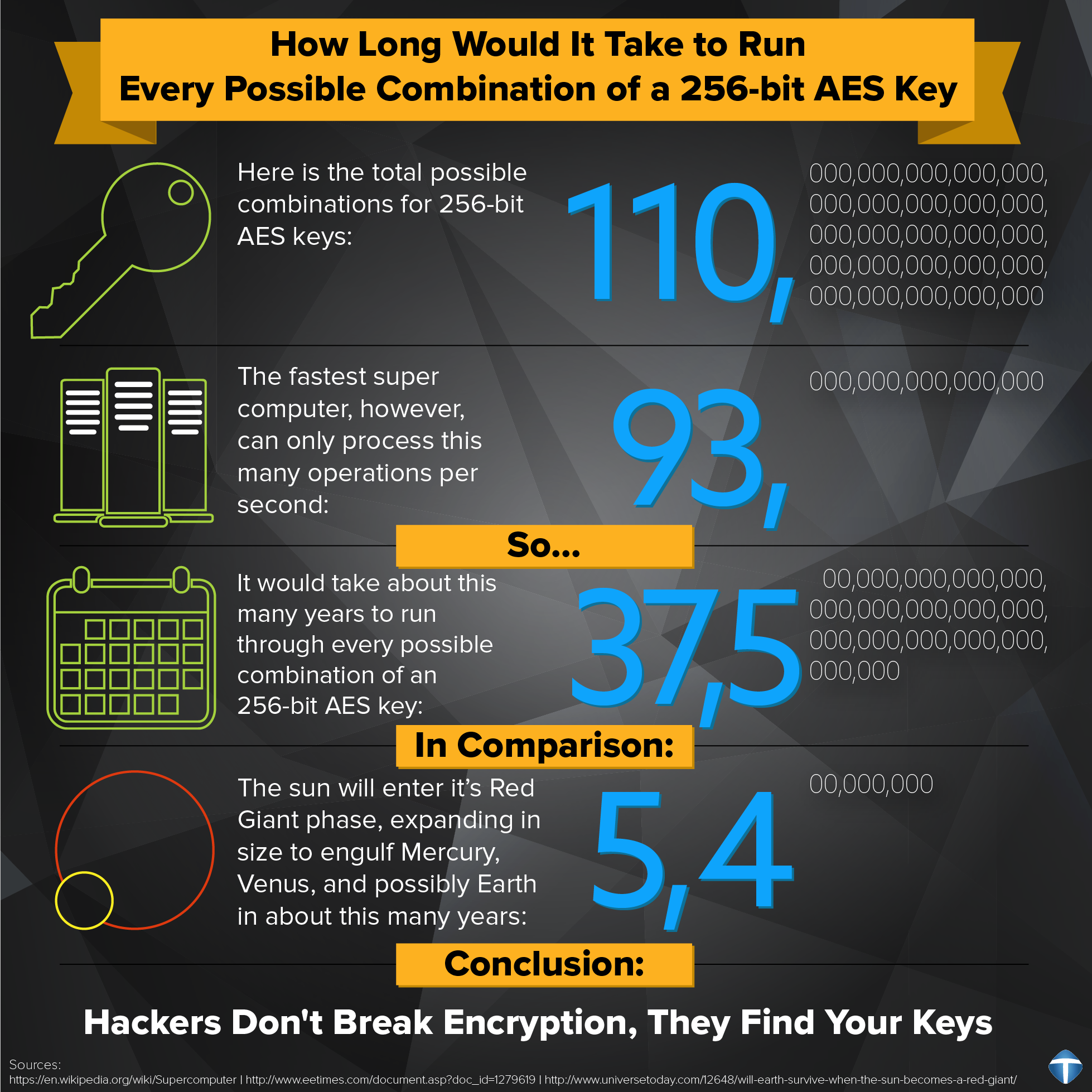Aes 256 Key Generator Online
An AES-128 expects a key of 128 bit, 16 byte. To generate such a key, use OpenSSL as: openssl rand 16 myaes.key AES-256 expects a key of 256 bit, 32 byte. To generate such a key, use: openssl rand 32 myaes.key – ingenue Oct 12 '17 at 11:57. As AES is a symmetric algorithm the same secret key can be used for both encryption and decryption. The expected secret key size we have specified in the key size dropdown So if key size is 128 then 'aesEncryptionKey' is a valid secret key because it has 16 characters i.e 16.8=128 bits. Generating AES keys and password Use the OpenSSL command-line tool, which is included with InfoSphere® MDM, to generate AES 128-, 192-, or 256-bit keys. The madpwd3 utility is used to create the password.
HMAC(Hash-based message authentication code) is a message authentication code that uses a cryptographic hash function such as SHA-256, SHA-512 and a secret key known as a cryptographic key. HMAC is more secure than any other authentication codes as it contains Hashing as well as MAC.
Aes 256 Key Generator Online Hack

Before information is sent to the server it is encrypted (by AES 256) in your browser with a randomly generated key or your passphrase. Store on our server Our server receives your information encrypted and cannot decrypt it, because neither the link nor your passphrase were ever sent to the server.
Below is a free online tool that can be used to generate HMAC authentication code. We can generate hmac-sha256 as well as hmac-sha512 code with it. Chmod x windows.
If You Appreciate What We Do Here On Devglan, You Can Consider:
- Like us at: or follow us at
- Share this article on social media or with your teammates.
- We are thankful for your never ending support.
Usage Guide - HMAC-SHA256 Online Tool

First, enter the plain-text and the cryptographic key to generate the code. Then, you can use select the hash function you want to apply for hashing. The default is SHA-256. Then you can submit your request by clicking on the compute hash button to generate the HMAC authentication code for you.
By default, the output is in plain-text format but you also have an option to get the output in Base64 format. Below is a screenshot of the usage:
Please enable JavaScript to view the comments powered by Disqus.